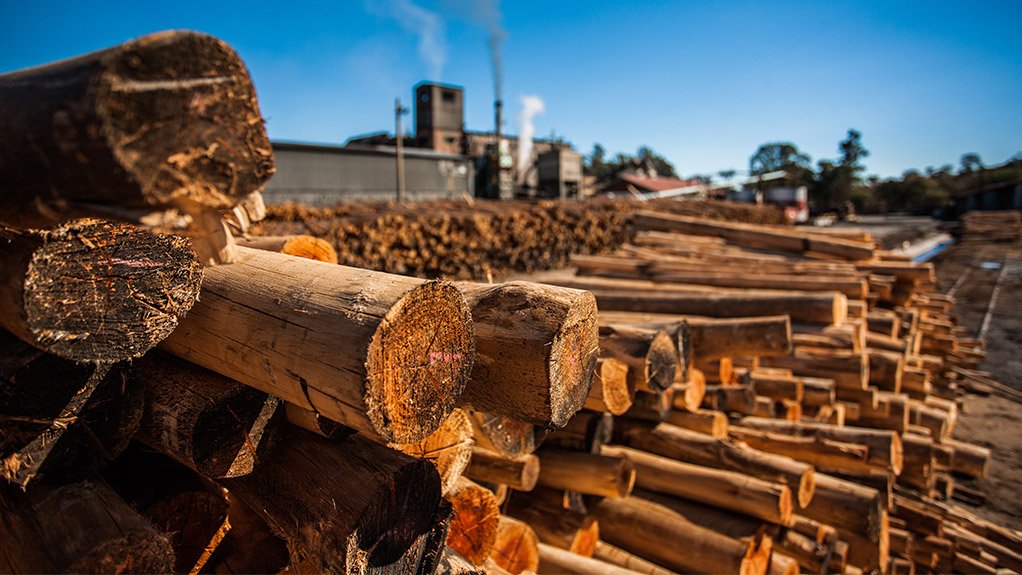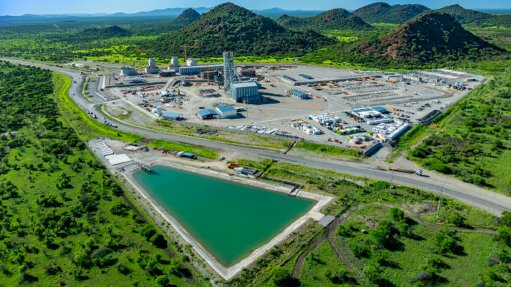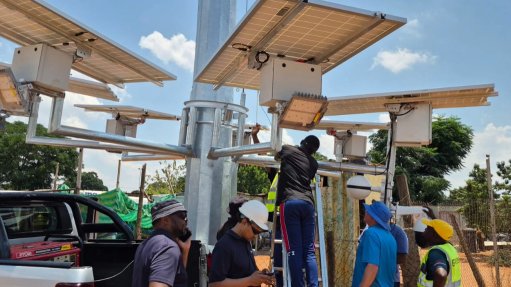Jacobs Capital, partner invest R300m in recapitalising KZN hardboard manufacturer
Durban-based private equity firm Jacobs Capital and its partner Black Bird Capital are confident that investment of around R300-million will place struggling hardboard manufacturer Masonite back on its feet in the short to medium term.
The troubled company was placed in business rescue in December 2015 after poor market conditions prevented it from recovering after an explosion at its 68 000 m² wood based fibre pulp mill in Escourt, KwaZulu-Natal, in June 2014.
The business rescue process, which ended in mid-August, culminated in the acquisition of the Masonite mill by the Millco consortium, comprising Jacobs Capital and Black Bird Capital. They hold 49% and 51% of the company respectively.
Masonite’s forestry assets were bought by Forestco which is owned by R&B Timbers. An agreement was concluded to ensure a guaranteed timber supply to the mill.
In terms of the agreement, all 1 000 jobs across both operations were saved. The mill, which is the largest in the southern hemisphere, is a significant employer in the Estcourt region.
Jacobs Capital CEO Wessel Jacobs says a lack of investment and product development are just two of the factors that brought a fundamentally sound company to its knees.
He has spent over 20 years developing, acquiring and selling multimillion-rand enterprises. Since 2002, Jacobs Capital has completed over 50 restructuring projects including the successful turnaround of the Da Gama textile mill in East London.
Masonite is one of four major investments by the group in 12 months. Jacobs Capital’s portfolio, valued at close to R2-billion, includes MB Workwear, Da Gama, Gelvenor Textiles, Summit Crane Hire and automotive component supplier, Connectco Fasteners.
“Extensive recapitalisation of the production lines and careful management of costs are essential if we are to ensure that Masonite returns to sustainable profit,” he explains.
The acquisition was structured to ensure that all creditors were paid out, leaving the company with a debt-free balance sheet and working capital of R85-million, as well as R100-million in stock holding.
An additional R300-million recapitalisation of the mill is already under way. This will include significant upgrades to the boilers and presses.
The existing hardboard production lines will be upgraded, while new automation and monitoring equipment will be added.
“Initially, we thought we would need to close down and restart from zero on the back of auxiliary infrastructure. Now we know that we can work with what we have. However, extensive recapitalisation of the production lines is necessary to ensure that the mill runs at full capacity. A possible new product line is also among plans to ensure that Masonite keeps up with market trends,” he says.
According to Jacobs, Canadian multinational Hatch, a multidisciplinary management, engineering and development consultancy, will manage the modernisation of the line and look at both people and processes to improve throughput and efficiencies.
He believes that, from the outset, it is important for the company to put in place a sound and competitive business model, a clear and focused strategy and good corporate governance and risk management structures.
It is not yet clear whether the company will continue to be listed on the JSE.
Since the acquisition was rubber stamped by the Competition Commission in June, a number of teams have set to work.
What they found was surprisingly positive, Jacobs admits.
“The business was distressed and, initially, we had to decide whether or not it was fundamentally sound enough to break even in the medium term. Only then could be look at the longer-term prospects. It has a good energy at the moment and a lot of positive work is going on,” he says.
There was a “lot of low hanging fruit” that could be harvested to produce almost immediate gains, facilitating the introduction of a new waste reduction programme and an energy savings programme.
The accounting system is being replaced while the inventory management model is being upgraded to include automated scanning and tracking. This is expected to improve service, lead times and customer relations management.
Failure to address these fundamentals was probably due to a lack of support from the company’s former parent, the Masonite International Corporation, which had a 78.3% stake in the local operation.
This could be attributed to Masonite International Corporation’s own brush with bankruptcy. In March 2009, it filed for Chapter 11 protection in the US and Companies' Creditors Arrangement Act protection in Canada in an attempt to restructure its $2.64-billion debt.
The end result was that there had been no investment in Masonite Africa for ten years.
“A business such as this is capital intensive. It is not raw material but capital driven and, if you do not invest in technology or staff training, you can’t expect a return,” Jacobs says.
Other shortfalls include a poor understanding of local market conditions by a distracted offshore parent.
IMPROVED PRODUCT PORTFOLIO
He also believes the Masonite product portfolio was not properly developed.
He points out that, up until now, a “strong brown commodity” rather than a product with an identity has been marketed.
Nevertheless, Masonite’s products have outperformed competitors in a challenging local market.
As with many other South African producers, Masonite has had to contend with the dumping of cheap product. Its main markets – furniture and construction – remain depressed in an underperforming economy.
Consistency of supply and price have helped Masonite retain a 45% to 50% local market share even though there is a 15% to 20% price differential.
Most competitor products are imported from Portugal, Spain, Malaysia, China and Brazil.
“This is fundamentally a product that has been undersold. We were surprised to find how much life there was still in the product. For me, the most exciting part will be expanding the product range through innovation and value addition and creating products that will differentiate this company from its competitors,” Jacobs adds.
This means Masonite will develop a range of end-user products that could include floor tiles and ceiling components.
This will go hand-in-hand with the almost inevitable rebranding of both the company and its products.
The new owners can operate under the Masonite name until early 2017 before having to pay the company’s former US parent for use of the brand name.
Although it is too early to provide any specifics, initial analysis indicated that the value of the brand did not warrant the large outlay required.
There will also be opportunities to grow Masonite’s market both locally and globally further down the line once new products and production lines are in place and the plant is again operating at full capacity.
The starting point is a whole new look at the broader construction market. “The hardboard market makes up just 10% of the overall market for thin board. We don’t play in 90% of the market, so we think there is definitely an opportunity for us,” Jacobs says.
With a weak rand and a ready timber supply, there are also global markets for Masonite’s products.
At present, 25% of production goes to Australia, Malaysia and the East. An already positive response to the acquisition from these and new markets could increase export volumes in the near future.
Article Enquiry
Email Article
Save Article
Feedback
To advertise email advertising@creamermedia.co.za or click here
Press Office
Announcements
What's On
Subscribe to improve your user experience...
Option 1 (equivalent of R125 a month):
Receive a weekly copy of Creamer Media's Engineering News & Mining Weekly magazine
(print copy for those in South Africa and e-magazine for those outside of South Africa)
Receive daily email newsletters
Access to full search results
Access archive of magazine back copies
Access to Projects in Progress
Access to ONE Research Report of your choice in PDF format
Option 2 (equivalent of R375 a month):
All benefits from Option 1
PLUS
Access to Creamer Media's Research Channel Africa for ALL Research Reports, in PDF format, on various industrial and mining sectors
including Electricity; Water; Energy Transition; Hydrogen; Roads, Rail and Ports; Coal; Gold; Platinum; Battery Metals; etc.
Already a subscriber?
Forgotten your password?
Receive weekly copy of Creamer Media's Engineering News & Mining Weekly magazine (print copy for those in South Africa and e-magazine for those outside of South Africa)
➕
Recieve daily email newsletters
➕
Access to full search results
➕
Access archive of magazine back copies
➕
Access to Projects in Progress
➕
Access to ONE Research Report of your choice in PDF format
RESEARCH CHANNEL AFRICA
R4500 (equivalent of R375 a month)
SUBSCRIBEAll benefits from Option 1
➕
Access to Creamer Media's Research Channel Africa for ALL Research Reports on various industrial and mining sectors, in PDF format, including on:
Electricity
➕
Water
➕
Energy Transition
➕
Hydrogen
➕
Roads, Rail and Ports
➕
Coal
➕
Gold
➕
Platinum
➕
Battery Metals
➕
etc.
Receive all benefits from Option 1 or Option 2 delivered to numerous people at your company
➕
Multiple User names and Passwords for simultaneous log-ins
➕
Intranet integration access to all in your organisation




















